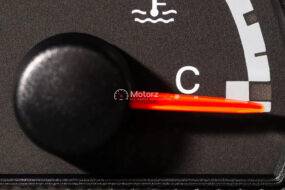Toyota’s Legacy The Evolution of a Reliable Brand In the dynamic landscape of the automotive industry, where trends come and go, one brand has stood the test of time with unwavering reliability and innovation—Toyota. The journey of Toyota is not just a narrative of a car manufacturer; it’s a saga of resilience, ingenuity, and a commitment to excellence.
Foundations of Dependability
The roots of Toyota’s reliability can be traced back to its early years. Founded in 1937 by Kiichiro Toyoda, the company was initially focused on textile machinery. However, Kiichiro’s vision extended beyond looms and spinning frames; he aspired to establish Toyota as a force in the automotive realm. Toyota’s foray into the automotive industry gained momentum with the release of the AA, its first passenger car, in 1936. This was a crucial step in Toyota’s evolution, marking the beginning of a legacy characterized by durability and dependability. The company’s commitment to quality was evident even in its formative years.
Innovation and Adaptability
As the years unfolded, Toyota’s Legacy became synonymous with innovation. One of the pivotal moments in its history was the introduction of the Toyota Production System (TPS) in the 1950s. TPS revolutionized manufacturing processes, emphasizing efficiency, waste reduction, and continuous improvement. This not only streamlined production but also laid the groundwork for Toyota’s reputation for building reliable and high-quality vehicles. In the wake of the oil crisis in the 1970s, Toyota adapted with agility. The launch of the fuel-efficient Corolla in 1966 and the introduction of the groundbreaking Prius in 1997 showcased the company’s foresight and commitment to sustainability. These moves not only aligned with global trends but also reinforced Toyota’s image as a brand that anticipates and addresses the evolving needs of its consumers.
Global Reach, Local Impact:
Toyota’s ascent to global prominence is marked by its strategic approach to localization. The company didn’t just export cars; it invested in understanding and adapting to local markets. This approach, coupled with an unwavering focus on quality, allowed Toyota to transcend cultural and geographical boundaries. Today, Toyota has a presence in over 170 countries, and its vehicles are revered for their reliability on roads worldwide.
Safety First
In an era where safety is paramount, Toyota’s Legacy has consistently prioritized the well-being of its customers. The implementation of advanced safety technologies, such as the Toyota Safety Sense suite, demonstrates the brand’s commitment to not only meeting but exceeding safety standards. Whether it’s collision avoidance systems or adaptive cruise control, Toyota has been at the forefront of integrating cutting-edge safety features into its vehicles.
Sustainable Mobility
As the world grapples with environmental challenges, Toyota remains at the forefront of sustainable mobility. The push towards hybrid and electric vehicles, exemplified by models like the Prius and the fully electric bZ4X, underscores Toyota’s dedication to creating a greener future. This commitment to eco-friendly innovation not only aligns with the company’s ethos but also positions Toyota as a leader in the evolving landscape of sustainable transportation.
Customer Loyalty and Resale Value
One of the hallmarks of Toyota’s legacy is the unparalleled loyalty it enjoys from its customers. The reliability of Toyota vehicles is not just a marketing slogan; it’s a reality attested by millions of satisfied customers worldwide. This trust has translated into remarkable resale value for Toyota vehicles, making them a prudent choice for those who view their cars as long-term investments.
Challenges and Continuous Improvement:
Toyota, like any long-standing institution, has faced its share of challenges. From recalls to global economic downturns, the brand has navigated through turbulent waters. However, it is the ability to learn from setbacks, implement changes, and continuously improve that sets Toyota apart. The philosophy of Kaizen, or continuous improvement, is ingrained in the company’s DNA, ensuring that every challenge becomes an opportunity for growth.
Conclusion
In conclusion, Toyota’s Legacy is a testament to the power of vision, innovation, and an unwavering commitment to quality. From humble beginnings to global dominance, Toyota has not just manufactured vehicles; it has engineered a reputation for reliability that transcends generations. As the automotive industry hurtles towards an electrified and autonomous future, one thing remains constant—Toyota’s commitment to being a beacon of dependability in a rapidly changing world. The evolution of this reliable brand is not just a story of cars; it’s a narrative of resilience, adaptability, and a relentless pursuit of excellence.





